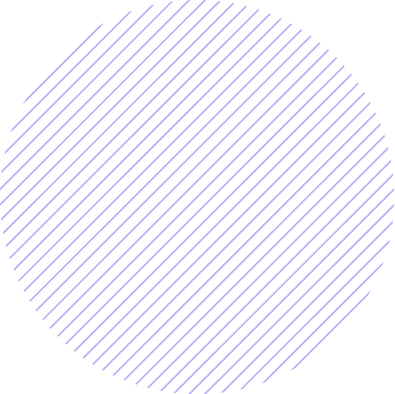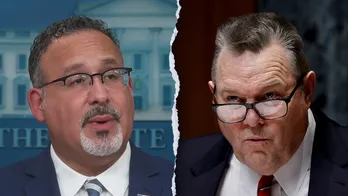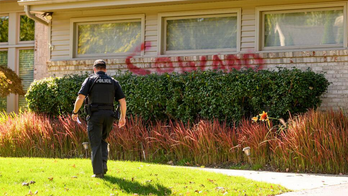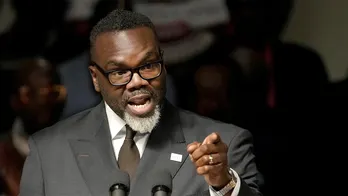Post Detail



Published Date
Category
Two pioneers of artificial intelligence — John Hopfield and Geoffrey Hinton — won the Nobel Prize in physics Tuesday for helping create the building blocks of machine learning that is revolutionizing the way we work and live but also creates new threats for humanity.
Hinton, who is known as the godfather of artificial intelligence, is a citizen of Canada and Britain who works at the University of Toronto, and Hopfield is an American working at Princeton.
"These two gentlemen were really the pioneers," said Nobel physics committee member Mark Pearce. "They ... did the fundamental work, based on physical understanding which has led to the revolution we see today in machine learning and artificial intelligence."
The artificial neural networks — interconnected computer nodes inspired by neurons in the human brain — the researchers pioneered are used throughout science and medicine and "have also become part of our daily lives, for instance in facial recognition and language translation," said Ellen Moons, a member of the Nobel committee at the Royal Swedish Academy of Sciences.
This photo shows the 2024 Nobel Prize winners in Physics, professor John Hopfield, left, of Princeton University, and professor Geoffrey Hinton, of the University of Toronto, on Oct. 8, 2024. (Princeton University via AP and Noah Berger/AP Photo)
Hopfield, whose 1982 work laid the groundwork for Hinton's, told The Associated Press Tuesday, "I continue to be amazed by the impact it has had."
Hinton predicted that AI will end up having a "huge influence" on civilization, bringing improvements in productivity and health care.
"It would be comparable with the Industrial Revolution," he said in an open call with reporters and officials of the Royal Swedish Academy of Sciences.
"Instead of exceeding people in physical strength, it’s going to exceed people in intellectual ability. We have no experience of what it’s like to have things smarter than us. And it’s going to be wonderful in many respects," Hinton said.
"But we also have to worry about a number of possible bad consequences, particularly the threat of these things getting out of control."
The Nobel committee also mentioned fears about the possible flipside.
Moons said that while it has "enormous benefits, its rapid development has also raised concerns about our future. Collectively, humans carry the responsibility for using this new technology in a safe and ethical way for the greatest benefit of humankind."
Hinton shares those concerns. He quit a role at Google so he could speak more freely about the dangers of the technology he helped create.
John Hopfield and Geoffrey Hinton, seen in picture, are awarded this year's Nobel Prize in Physics, which was announced at a press conference by Hans Ellergren, center, permanent secretary at the Swedish Academy of Sciences in Stockholm, Sweden, on Oct. 8, 2024. (Christine Olsson/TT News Agency via AP)
"I am worried that the overall consequence of this might be systems more intelligent than us that eventually take control," Hinton said.
For his part, Hopfield, who signed early petitions by researchers calling for strong control of the technology, compared the risks and benefits of machine learning to work on viruses and nuclear energy, capable of helping and harming society.
Neither winner was home when they received the news. Hopfield, who was staying with his wife at a cottage in Hampshire, England, said that after grabbing coffee and getting his flu shot, he opened his computer to a flurry of activity.
"I’ve never seen that many emails in my life," he said. A bottle of champagne and bowl of soup were waiting on his desk for him, he added, but he doubted there were any fellow physicists in town to join the celebration.
Hinton said he was shocked at the honor.
"I’m flabbergasted. I had no idea this would happen," he said when reached by the Nobel committee on the phone. He said he was at a cheap hotel with no internet.
Hinton, 76, helped develop a technique in the 1980s known as backpropagation that has been instrumental in training machines how to "learn" by fine-tuning errors until they disappear. It’s similar to the way a student learns from a teacher, with an initial solution graded and flaws identified and returned to be fixed and repaired. This process continues until the answer matches the network’s version of reality.
His team at the University of Toronto later wowed peers by using a neural network to win the prestigious ImageNet computer vision competition in 2012. That win spawned a flurry of copycats and was "a very, very significant moment in hindsight and in the course of AI history," said Stanford University computer scientist and ImageNet creator Fei-Fei Li.
"Many people consider that the birth of modern AI," she said.
Artificial intelligence pioneer Geoffrey Hinton speaks at the Collision Conference in Toronto, on June 19, 2024. (Chris Young/The Canadian Press via AP, File)
Hinton and fellow AI scientists Yoshua Bengio and Yann LeCun won computer science’s top prize, the Turing Award, in 2019.
"For a long time, people thought what the three of us were doing was nonsense," Hinton told told the AP in 2019. "They thought we were very misguided and what we were doing was a very surprising thing for apparently intelligent people to waste their time on."
"My message to young researchers is, don’t be put off if everyone tells you what are doing is silly."
And Hinton himself uses machine learning in his daily life, he said.
"Whenever I want to know the answer to anything, I just go and ask GPT-4," Hinton said at the Nobel announcement. "I don’t totally trust it because it can hallucinate, but on almost everything it's a not-very-good expert. And that’s very useful."
Hopfield, 91, created an associative memory that can store and reconstruct images and other types of patterns in data, the Nobel committee said.
"What fascinates me most is still this question of how mind comes from machine," Hopfield said in a video posted online by The Franklin Institute after it awarded him a physics prize in 2019.
Hinton used Hopfield's network as the foundation for a new network that uses a different method, known as the Boltzmann machine, that the committee said can learn to recognize characteristic elements in a given type of data.
A Nobel Prize medal is displayed before a ceremony at the Swedish Ambassador's Residence in London, on Dec. 6, 2021. (AP Photo/Matt Dunham, File)
Bengio, who was mentored by Hinton and "profoundly shaped" by Hopfield’s thinking, told the AP that the winners both "saw something that was not obvious: Connections between physics and learning in neural networks, which has been the basis of modern AI."
He said he was "really delighted" that they won the prize. "It’s great for the field. It’s great for recognizing that history."
Six days of Nobel announcements opened Monday with Americans Victor Ambros and Gary Ruvkun winning the medicine prize for their discovery of tiny bits of genetic material that serve as on and off switches inside cells that could one day lead to powerful treatments for diseases like cancer.
The prize carries a cash award of $1 million from a bequest left by the award's creator, Swedish inventor Alfred Nobel. The laureates are invited to receive their awards at ceremonies on Dec. 10, the anniversary of Nobel’s death.
Nobel announcements continue with the chemistry prize on Wednesday and literature on Thursday. The Nobel Peace Prize will be announced Friday and the economics award on Oct. 14.

16 Oct 2024
FIRST ON FOX – Sen. Jon Tester, D-Mont., is calling on President Biden and his administration's Depa...

16 Oct 2024
West Bloomfield police did not identify the owner of the home, but the university acknowledged that ...

15 Oct 2024
"When our people wanted to be liberated and emancipated in this country, the argument was, ‘you can’...